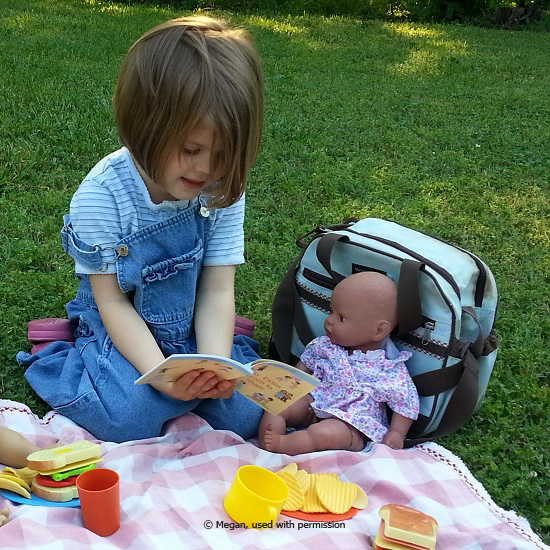
A good night’s sleep—that elusive goal of every mom—often remains underappreciated by the general population. If you’re like me, you’ve spent many long nights feeding hungry babies, nursing sick children, and comforting little ones.
I distinctly remember the exuberant joy I felt the first time my firstborn slept five hours straight at night—an event worthy of a Facebook status update! But unfortunately, that wasn’t the end of the sleepless nights. My little girl soon started teething. Then came the occasional ear infections, coughing spells, and stomach bugs. Summer thunderstorms rolled in, and imaginary nighttime monsters peeked into rooms. Sleep became like a much-longed-for-friend who only occasionally came to visit.
Confession
And I have a confession to make: I love sleeping. So at first I resented being awakened at 2:00 a.m. by a screaming child. I longed to be able to push a “pause” button on mothering and snuggle under the covers for a good nap. But mothering, as you well know, does not fit into a tidy 8:00 a.m. to 8:00 p.m. schedule. It never stops.
I don’t think I will ever manage being woken at 2:00 a.m. with a smile on my face. But the Lord has been showing me how I can make the best of these unexpected wake-up calls.
Focus
Even though it is often more difficult in the nighttime hours, I can focus on exemplifying Christ to my children. Several times the Gospels tell us of how Christ had compassion on the multitudes even when He was physically weary. He never complained. He never sent them away. When I get up in the middle of the night to take care of my children, more than just being a good mom, I am living the love of Christ for them.
Additionally, these nighttime adventures provide me with more opportunities to fulfill the commandment of Deuteronomy 6:7 to talk to our children continually about God. When my little one is awakened from a nightmare or by a bad storm, I can comfort her with reminders that God is always watching over us, protecting His sons and daughters. When I’m rocking a sick child back to sleep, I can sing songs about God’s love and mercy.
And most of all, when I’m lacking sleep, I am continually reminded of my need to rely on the Lord’s strength. With countless other sleep-deprived moms, I echo the psalmist in Psalm 73:26, “My flesh and my heart faileth: but God is the strength of my heart, and my portion for ever.”
Ultimately, at the end of the long days that follow the sleepless nights, I am most blessed when I realize again that the Lord has sustained me.



